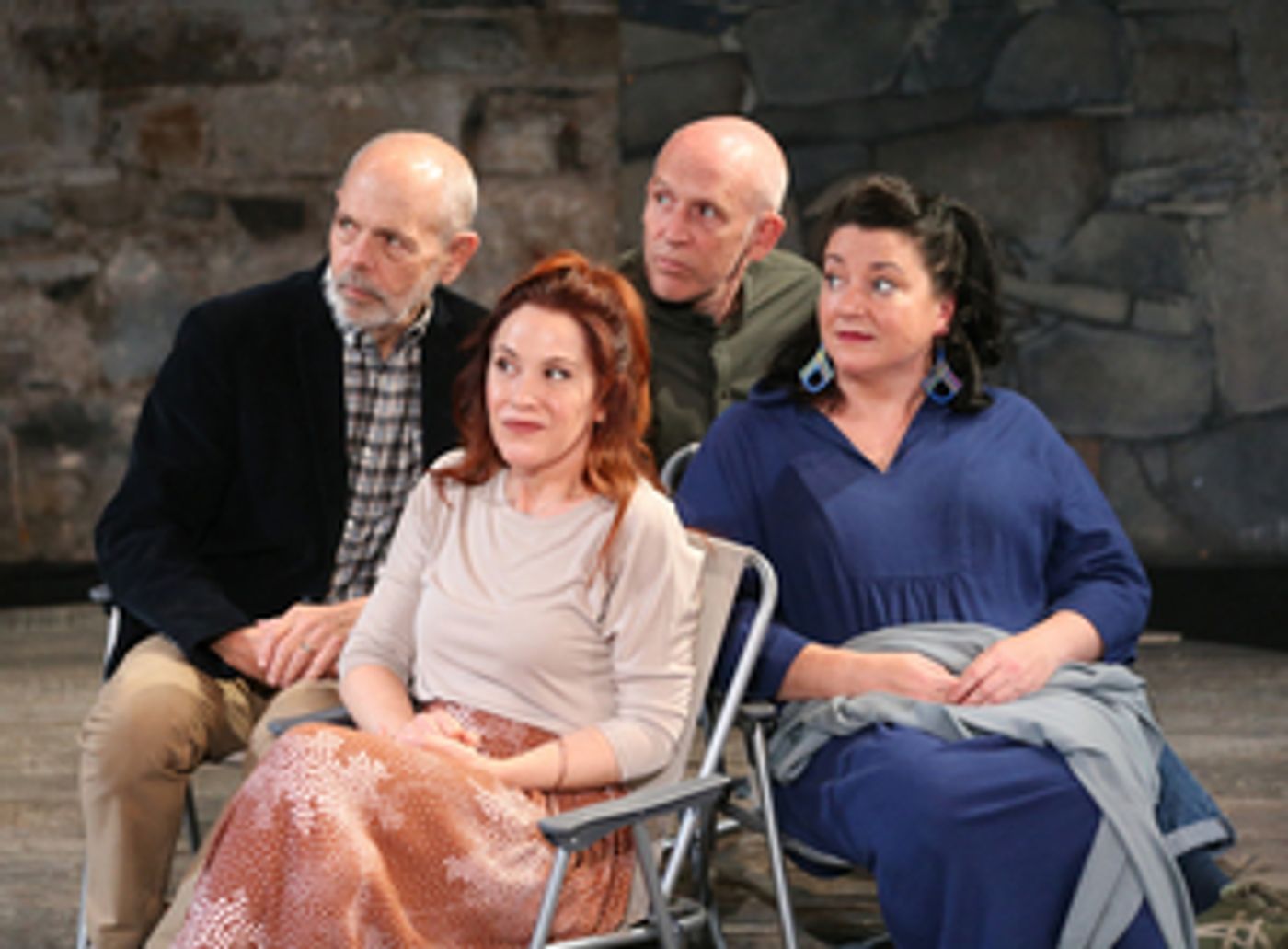Feature: THE REALISTIC JONESES at Rubicon Theatre Company
A talk with Joe Spano about Keeping Up with The Joneses.


In an unnamed mountain town, two neighboring couples share the last name, "Jones." As they become better acquainted with one another, they discover further commonalities, both comic and poignant.
This production of The Realistic Joneses recently performed at the Dublin Theatre Festival with the same cast (Faline England, Sorcha Fox, Conor Lovett, and Joe Spano) and director, Judy Hegarty-Lovett. The Rubicon's production offers the rare opportunity to catch a revival of playwright Will Eno's 2014 play, the only one to grace Broadway.
Joe Spano, cast member and beloved veteran of stage and television, talked with me about rehearsing for the Rubicon's production with fresh eyes, and replied to my questions about the meaning of the play.
On that last point, naturally, he demurred. However, he broke down what he believed The Joneses was about when rehearsals began: "It's a tragi-comedy about two married couples who meet in somewhat odd and yet extremely domestic circumstances, and their attempts to make sense of each other." Spano points to a signature theme of the playwright's entire oeuvre, the play's comic oppositions of the ordinary and exceptional in everyday life.
"It's about love and mortality, connection, and disarray, quantum physics and cleaning the refrigerator," Spano continued. "The play asks how can we do our best, or, live with failing to do it in a world that we are totally incapable of truly understanding," Spano said, concluding on the play's exploration of the limits of expression, knowledge, and action.
The play's script was a special challenge for the actors to memorize because, as Spano explained, Eno's characters don't have an obvious driving motive. Most characters use language to get what they want, allowing actors to absorb their dialogue as extensions of the characters' needs. Spano related that when he was studying acting as an undergraduate, rehearsing a scene from an Ibsen play, the instructor had him explain each and every line of dialogue in terms of character motivation. He broke the scene down utterance by utterance. In The Realistic Joneses the connection of need, speech, and action - the basis of modern acting technique - has broken down.
How the director Judy Hegarty Lovett and the cast will play these voids in our knowledge, how they will dramatize our shared inability to articulate or, even know ourselves, will be revealed only by seeing the show. Spano, who was on the cusp of rehearsals, made a point of saying that the audience is the best and final collaborator in the meaning of the play: The play's true meaning only takes shape with its participation.
If this description of The Realistic Joneses recalls the dramaturgy of the great Irish playwright, Samuel Beckett, then it's all the more appropriate that Spano first met the director Judy Hegarty-Lovett and Conor Lovett while performing Beckett's Waiting for Godot in Ireland. The actor playing the character of Lucky in Godot could not perform, so Conor Lovett stepped in at the very last moment without the benefit of rehearsal. Lucky has one lengthy and daunting monologue in the play, which, to Spano's great delight and relief, Lovett knew perfectly. A friendship and collaborative partnership with him, his wife, Judy Hegarty Lovett was born.
The Realistic Joneses begins as early as January 25th with previews and then runs through February 25th.
Videos

